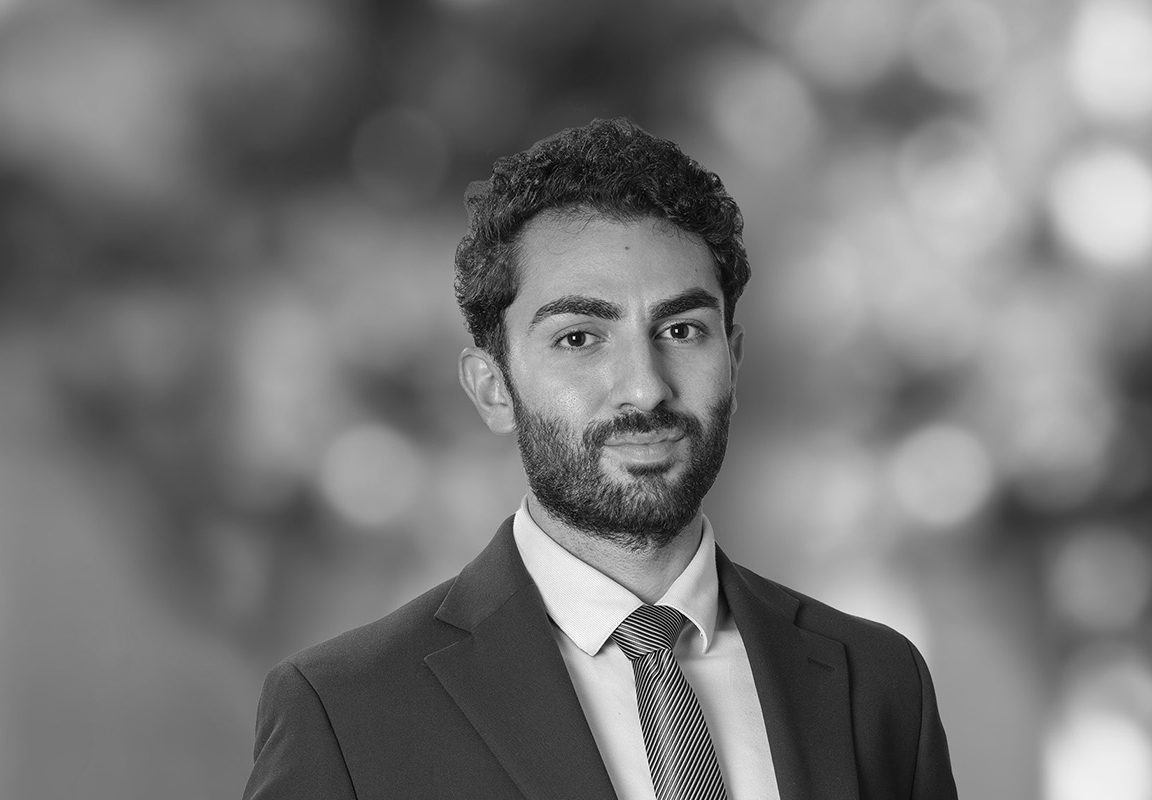
Strategically navigating the Middle East–Latin America investment corridor: Trends and safeguards
22 min read
A new wave of Middle Eastern investment into Latin America is redefining global capital flows and opening opportunities across strategic sectors. As Middle Eastern investors expand into the region, understanding these trends, the regulatory landscape, and the available investment protection mechanisms, will be essential to protecting and positioning their investments. We explore these below.
Introduction
As global trade patterns realign, a new investment corridor is taking shape, linking capital from the Gulf to Latin America. Sovereign wealth funds, conglomerates, and family offices from the Gulf Cooperation Council ("GCC") are investing billions across Latin America's energy, agriculture, fintech, and infrastructure sectors.
Trade between Mexico and GCC states rose more than 33% between 2021 and 2022, while non-oil trade with the UAE has nearly doubled over the past decade.1 In 2024, UAE-Argentina non-oil trade surged more than 70%, and the year before, UAE-Colombia trade jumped more than 43%.2 Chile has shown similar momentum, with GCC-Chile trade climbing from US$601 million in 2018 to US$828 million in 2022, a 38% increase.3 Business sentiment reflects this momentum—64% of Latin American executives plan to expand engagement with the Gulf, especially in agriculture, renewable energy, and digital services.4 Underscoring this momentum, Saudi Arabia recently opened its first Chamber of Commerce office in Miami, further signaling the growing links between Gulf capital and the Americas.5
We analyze below how capital moves across the Middle East-Latin America corridor in four key sectors—agritech, renewable energy, fintech, and infrastructure, and discuss strategies that allow investors in the corridor to maximize protections for their investments.
Capital Flow
Agritech
The Middle East's arid climate, scarce water resources, and fast-growing population (expected to reach 600 million by 2025) have made food security a strategic priority, driving Gulf investors toward Latin America's fertile lands and agritech innovation.6 This synergy is already taking shape through landmark deals: Saudi investors have increased their ownership in various leading Latin American protein and agribusiness platforms, reinforcing long-term food-security objectives.7 Other Gulf institutions are investing in Latin American companies pioneering technology-enabled food production, including firms incorporating AI, data analytics, and blockchain into supply-chain processes.8 On the innovation front, Latin American agritech startups are collaborating with Gulf partners to pilot precision-irrigation and climate-smart farming technologies in desert farms.9
Renewable Energy
The Gulf's push to move beyond oil has become one of the world's most ambitious diversification efforts. Through sweeping reform plans, from Saudi Vision 2030 to Oman Vision 2040 and Abu Dhabi Vision 2030,10 Middle Eastern governments are steering trillions toward clean energy and industrial transformation, with sovereign wealth funds leading the charge.11 These funds, controlling nearly US$5 trillion in assets,12 are now channeling capital into Latin America's vast renewable and critical-mineral landscape. Certain Gulf investors are doing so by taking strategic minority stakes in Latin American metals companies, securing exposure to ever-increasingly important resources like copper and nickel.13 Others are deploying substantial capital into Brazil's growing biofuels and low-carbon fuels sector, reflecting strong interest in next-generation energy solutions.14 This includes collaborative investment frameworks with regional governments to develop and modernize mineral-supply chains that support the global energy transition.15 Several Gulf funds have also expanded their holdings in Latin American renewable-power and grid platforms, deepening their presence in the region's clean-energy market.16 Long-term arrangements for lower-carbon fuel supply, including multi-year LNG agreements, are further anchoring Gulf participation in the regional energy ecosystem.17 At the same time, investors are actively evaluating opportunities in the region's lithium projects, which are central to broader energy-transition strategies.18
Fintech
Latin America has become a proving ground for fintech innovation. More than 1,000 firms have launched and four unicorns have emerged in the Middle East, with US$1.9 billion raised in 2023 – 24, yet fintech still accounts for just 1-2 percent of banking revenues, one of the lowest rates in the world.19 Middle Eastern governments are intent on closing this gap: Saudi Arabia's Fintech Saudi initiative has introduced sandboxes, licensing regimes, accelerators, and an open banking strategy under Vision 2030.20 Bahrain adopted open banking in 2019, while the UAE, Egypt, and Qatar are all similarly advancing fintech-focused strategies.21
Against that backdrop, Middle Eastern investors are turning to Latin America's fintech landscape. Several institutions have made strategic minority investments in Latin American digital-only banks, supporting the region's transition toward fully online financial services.22 Others have increased their exposure to leading Latin American fintech platforms, including digital-banking and multi-service financial applications that integrate payments, lending, and consumer services.23 Taken together, these ventures reflect a pragmatic exchange: capital from the Gulf meeting the digital experimentation of Latin America.
Infrastructure
Latin America's infrastructure gap remains one of its biggest development hurdles. Meeting regional goals for transport, energy, water, and telecommunications by 2030 will require more than US$2.2 trillion in investment (an annual outlay of about three percent of GDP), far beyond what most governments can fund alone.24 This shortfall has opened the door for long-term foreign partners, including investors from the Middle East.
For its part, a leading UAE-based port and logistics group has become a key regional player, committing substantial capital to expand port and terminal capacity in Peru, Ecuador, and the Dominican Republic, strengthening free-trade-zone infrastructure and consolidating logistics hubs across both the Caribbean and the Pacific coast of South America.25 In Brazil, a Saudi-based investor has entered into a US$1 billion-plus long-term transportation concession, strengthening key industrial and export corridors.26 Finally, Mexico's energy sector in particular has seen leading Gulf energy companies sign cooperation frameworks with national oil enterprises to assess upstream prospects and explore joint opportunities in midstream and power-related infrastructure.27 Utilities and water-infrastructure groups have also acquired stakes in major international water-management companies that operate large-scale desalination assets in Mexico, reflecting growing interest in resilient water solutions.28
Regulatory & Political Risks
These mega investments inevitably carry political and regulatory risks. Indeed, the region has witnessed a suite of policy and regulatory shifts that could have financial implications on investments in the region:
For its part, Argentina is pursuing one of the region's most comprehensive liberalization programs in decades. Since taking office in late 2023, President Javier Milei has dismantled price controls, reduced subsidies, and committed to removing capital restrictions by 2025. While markets have responded positively, buoyed primarily by US financial support and expectations of renewed foreign inflows, deregulation at this pace nonetheless brings transitional risk and provincial challenges.29
In Brazil, regulatory complexity remains the main challenge. The long-awaited 2023 tax reform designed to merge five indirect taxes into a unified VAT is expected to simplify compliance and reduce cascading effects once implemented, but transition rules across federal, state, and municipal levels will remain intricate for several years. Sector-specific ownership limits and public-procurement preferences continue to require local partnerships and may pose compliance risks.30
Under President Gustavo Petro, Colombia has become significantly more unpredictable for foreign investors. Executive-driven reforms in energy, tax, and environmental regulation have altered the operating environment with limited legislative oversight. The government's efforts to centralize control over energy regulators, delineate mining zones as protected, and impose new levies on hydrocarbons have created risks for investors.31 Moreover, security risks have increased and threaten the viability of certain projects. While presidential elections will take place in a few months, uncertainty remains. Nearing the conclusion of President Gabriel Boric's government in Chile, the country's bureaucratic delays remain a key friction point.32
Finally, Mexico presents a different risk profile. A significant rise in foreign investment (largely driven by nearshoring into North America and the market-friendly policies of the 2010s) is now colliding with a policy shift toward greater State control in key sectors such as mining and energy.33 For example, Mexico has sought to strengthen the role of Petróleos Mexicanos ("Pemex") and the Comisión Federal de Electricidad ("CFE") and restore their preferential treatment in the hydrocarbons and electricity markets, to the detriment of private investors.34 Meanwhile, in the mining sector, the Government has enacted reforms that tighten permitting and concession terms, impose new environmental and water-use requirements, and purportedly expand government discretion vis-à-vis existing rights.35 In addition, various agencies have issued pretextual measures to terminate concessions or have disregarded long-standing norms and administrative practices, including in the assessment of taxes and fees. These moves, combined with a judicial reform that overhauls the selection of judges and risks weakening judicial independence, have significantly increased Mexico's regulatory risk.36
The Path Forward
To mitigate these risks, investors should ensure they are protected against these shifts and any State measures that could devalue or interfere with their assets.
One key safeguard is an investor's right to bring claims before a neutral international arbitration tribunal through investor-treaty arbitration, rather than relying on the host State's domestic courts. While some investors secure arbitration rights through contracts with the host State, many can rely on the State's consent contained in national investment laws or international investment treaties which can be either bilateral (i.e., between two States, called "BITs") or multilateral. These treaties contain mutual undertakings between those States to protect and promote investments made in their territories by nationals of the other State. Notably, not all States automatically include investor–State dispute settlement ("ISDS") provisions in the treaties they sign, so familiarity with different jurisdictions is essential. While most major Latin American jurisdictions typically provide for ISDS in their BITs, Brazil, for example, follows a distinct cooperation-and-facilitation model that excludes ISDS mechanisms altogether.
Prior to invoking treaty protections, an investor must first qualify as an "investor" under the treaty and the underlying asset must constitute an "investment." If those conditions are met, the treaty typically offers a range of substantive protections, such as guarantees of fair and equitable treatment ("FET") and full protection and security ("FPS"), protections against direct or indirect expropriation without compensation, promises of non-discrimination (through national treatment and most favored nation ("MFN") treatment), guarantees regarding the free transfer abroad of profits, an obligation on the part of the State (or its entities) to respect contracts entered into with investors (the so-called "umbrella clause"), and allows the investor to bring a direct claim against the host State for any such breach. Where a breach is found, the State is liable to pay compensation to the investor.
Thousands of such treaties (bilateral or multilateral) are currently in force worldwide, granting qualifying investors protection against unlawful State actions and allowing them to seek compensation directly through arbitration. Most define "investment" broadly to cover shares held directly or indirectly through subsidiaries, enabling investors to structure their holdings to benefit from treaty protection.
There are currently 19 BITs in force between Middle Eastern and Latin American States.37 Among the Middle Eastern States surveyed, the United Arab Emirates has concluded the greatest number of these treaties (six in total), including agreements with Uruguay (2018), Paraguay (2017), and Mexico (2016).38 By contrast, Saudi Arabia currently has no BITs in force with any Latin American State.
Before investing (or at a minimum, long before a dispute arises) foreign investors should make sure they have maximum protection under an international investment treaty by structuring their investments in such a way as to benefit from an existing treaty with the State in which the investment is located. This is typically achieved by inserting a holding company into the corporate structure and incorporating it in a jurisdiction that has a favorable investment treaty with the State where the investment is located. This approach, commonly known as BIT structuring, is widely recognized and upheld by arbitral tribunals, so long as the restructuring takes place before a dispute becomes reasonably foreseeable.39 Otherwise, tribunals typically reject jurisdiction where protections were arranged only after problems began.
On the commercial front, both investors and State entities should ensure that their contracts contain robust arbitration clauses. This means selecting an appropriate arbitral seat, a credible and neutral institution, and clear procedural language to avoid uncertainty over scope or enforcement. Careful drafting at the contract stage often determines whether arbitration will provide an effective, enforceable mechanism for resolving disputes when they arise.
In parallel with treaty planning and commercial arbitration provisions, investors should incorporate contractual safeguards that provide early remedies or exit rights if conditions deteriorate. Stabilization and change-in-law clauses, termination rights tied to specific regulatory events, and renegotiation triggers are critical tools for managing volatility before it escalates into a dispute.
1 Squeezed by US tariffs, Mexico seeks to deepen Gulf ties, ARABIAN GULF BUSINESS INSIGHT dated 6 July 2025 available at Squeezed by US tariffs, Mexico seeks to deepen Gulf trade ties | AGBI ("Combined bilateral exchanges between the UAE, Saudi Arabia, Qatar, Oman, Kuwait and Bahrain on one side and Mexico on the other grew more than 33 percent between 2021 and 2022, from $3.3 billion to $4.4 billion, according to the Gulf Cooperation Council's Statistical Center . . . Non-oil trade between Mexico and the UAE specifically has nearly doubled in the past 10 years, according to local media.").
2 Gulf-South America trade surges as economies grow, ARABIAN GULF BUSINESS INSIGHT dated 17 February 2025 available at https://www.agbi.com/analysis/trade/2025/02/gulf-south-america-trade-surges-as-economies-grow/ ("UAE-Argentina non-oil trade surged more than 70 percent last year to $537 million, according to the UAE's national news agency, Wam. The year before, Saudi trade with Argentina stood at $1.7 billion, and Chile sold Saudi Arabia about $570 million of goods. That same year, UAE non-oil trade with Colombia jumped more than 43 percent to a record $53 million. Saudi-Colombian trade was almost double that.").
3 Trade Exchange between GCC and Chile, GCC Statistical Center, 2 June 2024 available at GCC Statistical Center - Trade exchange between GCC and Chile, p. 3.
4 Bridging LatAm and GCC Economies for Accelerated Financial Growth, THE FINTECH TIMES dated 24 September 2024 available at https://thefintechtimes.com/bridging-latam-and-gcc-economies-for-accelerated-financial-growth/ ("With the GCC countries expected to attract more than $150 billion in foreign direct investment (FDI) by 2025 and Latin America experiencing a resurgence in growth post-pandemic, the time is ripe for strategic cooperation. The Economist Impact report highlights that 64 per cent of Latin American executives are now looking to increase engagement with the GCC, driven by opportunities in sectors like agriculture, renewable energy, and digital services.").
5 Overview: Miami Chamber of Commerce Riyadh, LINKEDIN available at (1) Miami Chamber of Commerce Riyadh: About | LinkedIn (describing the Miami Chamber of Commerce Riyadh as "a Chapter of the Miami Chamber of Commerce Dubai, that was created to specifically bridge the two gateways between Miami and Riyadh . . . founded in 2024."); Riyadh Chapter, Miami Chamber of Commerce – Dubai Home Page, MIAMI CHAMBER OF COMMERCE – DUBAI, RIYADH CHAPTERavailable at Riyadh Chapter - Miami Chamber of Commerce Dubai (outlining the chamber's mission of "fostering strong business connections, promoting economic growth, and facilitating cross-cultural exchanges between these two global hubs."); Miami Chamber of Commerce Dubai Announces Global Expansion to Riyadh, Saudi Arabia, INSTAGRAM dated 18 May 2025 available at Instagram ("The Chamber announced its global expansion to Riyadh, Saudi Arabia. Additionally, as part of an official rebrand, MDCC will be referred to as the Miami Chamber of Commerce Dubai (MCCD) going forward, reflecting its broader vision that both Miami and Dubai serve as gateways to various parts of the world. The first additional chapter will be the Miami Chamber of Commerce Riyadh (MCCR).").
6 The GCC imports 75% of its food – here's how it is increasing food security through innovation, WORLD ECONOMIC FORUM dated 14 February 2025 available at https://www.weforum.org/stories/2025/02/gulf-food-security-innovation/;The impact of climate change on food security in the Middle East and North Africa: Challenges and adaptation strategies, JOURNAL OF AGRICULTURE AND FOOD RESEARCH dated June 2025 available at https://www.sciencedirect.com/science/article/pii/S2666154325003345.
7 Saudi Arabia's SALIC ups stake in Brazil's Minerva, REUTERS dated 16 September 2020 available at https://www.reuters.com/article/world/middle-east/saudi-arabias-salic-ups-stake-in-brazils-minerva-idUSKBN26727R/; Saudi Arabia's SALIC buys 180 million BRF shares, WATTPOULTRY dated 19 July 2023 available at Saudi Arabia's SALIC buys 180 million BRF shares | WATTPoultry.com.
8 Abu Dhabi's IHC secures nearly 15% stake in Colombia's Nutresa, ZAWYA dated 27 April 2024 available at Abu Dhabi's IHC secures nearly 15% stake in Colombia's Nutresa ("Through its wholly owned subsidiary IHC Capital Holding, IHC has transferred its 2.03% stake in Grupo de Inversiones Suramericana SA, and in return received a 2.45% stake in Grupo Nutresa, which is headquartered in Medellin.The Abu Dhabi firm, through its wholly owned subsidiary Graystone Holdings, also launched an open market offer to acquire shares of Grupo Nutresa, resulting in the acquisition of an additional 12.38% stake in Nutresa.").
9 Test in Saudi desert boosts Brazilian startup, BRAZIL-ARAB NEWS AGENCY dated 25 August 2025 available at https://anba.com.br/en/test-in-saudi-desert-boosts-brazilian-startup/.
10 Strategic Role of Sovereign Wealth Funds in the Gulf's Energy Transition and Economic Diversification, RICE UNIVERSITY'S BAKE INSTITUTE FOR PUBLIC POLICY dated 15 July 2025 available at https://www.bakerinstitute.org/sites/default/files/2025-07/20250715_Alhajraf-Weath%20Funds-Working%20Paper.pdf, p. 5-6.
11 Strategic Role of Sovereign Wealth Funds in the Gulf's Energy Transition and Economic Diversification, RICE UNIVERSITY'S BAKE INSTITUTE FOR PUBLIC POLICY dated 15 July 2025 available at https://www.bakerinstitute.org/sites/default/files/2025-07/20250715_Alhajraf-Weath%20Funds-Working%20Paper.pdf, p. 6.
12 Strategic Role of Sovereign Wealth Funds in the Gulf's Energy Transition and Economic Diversification, RICE UNIVERSITY'S BAKE INSTITUTE FOR PUBLIC POLICY dated 15 July 2025 available at https://www.bakerinstitute.org/sites/default/files/2025-07/20250715_Alhajraf-Weath%20Funds-Working%20Paper.pdf, p. 3.
13 Manara takes a $2.5bn stake in Brazilian mining giant, ARABIAN GULF BUSINESS INSIGHT dated 1 May 2024 available at Manara takes a $2.5bn stake in Brazilian mining giant | AGBI.
14 Mubadala Capital plans $13.5bn biofuels investment in Brazil, FINANCIAL TIMES dated 5 May 2024 available at https://www.ft.com/content/bef4fc45-3837-45fb-8704-a18483386dbf.
15 Brazil joins forces with UAE to invest in critical minerals, BN AMERICAS dated 13 January 2025 available at https://www.bnamericas.com/en/features/brazil-joins-forces-with-uae-to-invest-in-critical-minerals.
16 QIA ups stake in Colombian energy company, ARABIAN GULF BUSINESS INSIGHT dated 21 July 2025 available at https://www.agbi.com/energy/2025/07/qia-ups-stake-in-colombian-energy-company/; Sustainably Powering Colombia's Growth: Exploring BCI's Investment in Isagen, BCI dated 22 May 2025 available at Sustainably powering Colombia's growth: Exploring BCI's investment in Isagen - British Columbia Investment Management Corporation.
17 Oman strikes LNG deal with Mexico's Amigo, ARABIAN GULF BUSINESS INSIGHT dated 5 May 2025 available at https://www.agbi.com/oil-and-gas/2025/05/oman-strikes-lng-deal-with-mexicos-amigo/.
18 Saudi Arabia sees lithium investment options in Chile, REUTERS dated 29 July 2024 available at Saudi Arabia sees lithium investment options in Chile | Reuters.
19 MENA fintech's ascent: Growth, investment, and the path forward, MCKINSEY dated 13 May 2025 available at MENA fintech's ascent: Growth, investment, and the path forward | McKinsey & Company.
20 Fintech in the Middle East: A guide to the local ecosystem, TENITY dated 22 July 2024 available at Fintech in the Middle East: A guide to the local ecosystem - Tenity.
21 Fintech in the Middle East: A guide to the local ecosystem, TENITY dated 22 July 2024 available at Fintech in the Middle East: A guide to the local ecosystem - Tenity.
22 Abu Dhabi's IHC invests $200m in Colombian digital bank Lulo, ARABIAN GULF BUSINESS INSIGHT dated 10 October 2022 available at Abu Dhabi's IHC invests $200m in Colombia's Lulo Bank | AGBI; Saudi Arabia sovereign fund Q2 moves include more than tripling Nu stake, trimming Visa, SEEKING ALPHA dated 14 August 2024 available at Saudi Arabia sovereign fund Q2 moves include more than tripling Nu stake (NYSE:NU) | Seeking Alpha.
23 SoftBank Invests US$1b in Colombian Delivery App Rappi, LAVCA dated 30 April 2019 available at SoftBank Invests US$1b in Colombian Delivery App Rappi - LAVCA.
24 The Infrastructure Gap in Latin America and the Caribbean: Investment Needed Through 2030 to Meet the Sustainable Development Goals, IDB dated December 2021 available at The Infrastructure Gap in Latin America and the Caribbean: Investment Needed Through 2030 to Meet the Sustainable Development Goals.
25 DP World to put $1bn into Peru ports, ARABIAN GULF BUSINESS INSIGHT dated 23 January 2025 available at DP World to put $1bn into Peru ports | AGBI; DP World Begins Berth Expansion at its Port in Posorja, Ecuador, DP WORLD dated 5 February 2025 available at DP World Expands Berth at Posorja Port to Boost Ecuador's Global Trade | News | DP World in the Americas; DP World Signs Agreement to Launch $760m Port and Free Trade Zone in Dominican Republic, DP WORLD dated 9 May 2025 available at DP World Signs Agreement to Launch $760M Port and Free Trade Zone in Dominican Republic | News | DP World in the USA.
26 PIF, Patria Investments partner on $1.2B infrastructure project in Brazil, ARGAAM dated 30 November 2023 available at PIF, Patria Investments partner on $1.2B infrastructure project in Brazil.
27 Abu Dhabi's Mubadala Petroleum, PEMEX sign MoU for potential opportunities in Mexico's energy sector, EMIRATES NEWS AGENCY – WAM DATED 19 January 2016 available at Abu Dhabi's Mubadala Petroleum, PEMEX sign MoU for potential opportunities in Mexico's energy sector | Emirates News Agency.
28 Abu Dhabi's TAQA to use $1.2 billion GS Inima deal as launchpad for global water expansion, REUTERS dated 25 August 2025 available at Abu Dhabi's TAQA to use $1.2 billion GS Inima deal as launchpad for global water expansion | Reuters; GS Inima Ensenada Project Overview, GS INIMA available at Ensenada Desalination Plant - GS Inima; GS Inima Los Cabos Project Overview, GS INIMA available at Los Cabos Desalination Plant - GS Inima.
29 Argentina sharply devalues its currency and cuts subsidies as part of shock economic measures, ASSOCIATED PRESS dated 12 December 2023 available at Argentina sharply devalues its currency and cuts subsidies as part of shock economic measures | AP News; Argentina Eliminates Capital Controls and Payment Timelines, INTERNATIONAL TRADE ADMINISTRATION dated 23 April 2025 available at Argentina Eliminates Capital Controls and Payment Timelines; Financial Liberalization: Benefits, Risks and Country Experiences, WORLD BANK dated 18 September 2019 available at World Bank Document (Noting that rapid financial liberalization is often difficult, with "initial inflows and high growth followed by outflows and crises [and] reversals associated with large depreciations and output fall"; instead, "[m]ost successful experiences include gradual approach and reforms."); A New Union Era in Argentina's Vaca Muerta, BAKER INSTITUTE FOR PUBLIC POLICY DATED 12 August 2021 available at A New Union Era in Argentina's Vaca Muerta | Baker Institute (describing concerns that union leadership in Neuquén may take a more combative approach toward energy companies, creating uncertainty for investors in Vaca Muerta, Argentina's leading shale oil and gas formation).
30 Brazilian Government announces substantial tax changes affecting Interest on Net Equity, financial investments, betting operations and IOF regulations, EY dated 12 June 2025 available at Brazilian Government announces substantial tax changes affecting Interest on Net Equity, financial investments, betting operations and IOF regulations | EY - Global; Brazil tax reform 2025: How corporate professionals are embracing practical change, THOMSON REUTERS dated 14 October 2025 available at Brazil tax reform 2025: How corporate professionals are embracing practical change - Thomson Reuters Institute.
31 On Colombia's Threatening Rhetoric against ICSID Arbitration and Implications for Foreign Investors, WHITE & CASE LLP dated 12 December 2024 available at On Colombia's Threatening Rhetoric against ICSID Arbitration and Implications for Foreign Investors | White & Case LLP; Focus: Colombia policy lurches chill investment, risk economic growth, REUTERS dated 21 March 2024 available at Focus: Colombia policy lurches chill investment, risk economic growth | Reuters.
32 Permisología le costó a Chile US$2.200 millones y frenó la creación de 30 mil empleos permanentes, UNIVERSIDAD SAN SEBASTIAN CENTRO DE POLÍTICAS PÚBLICAS dated 6 June 2025 avaiable at Permisología le costó a Chile US$2.200 millones y frenó la creación de 30 mil empleos permanentes | Políticas Públicas USS | Universidad San Sebastián (noting that Chile's ongoing excessive delay in processing environmental and sectoral permits cost the country more than US $2.2 billion in 2024, equivalent to 0.7 percent of GDP, and prevented the creation of more than 30,000 permanent jobs).
33 Foreign Investment Trends in Mexico Toward 2026, MEXICO BUSINESS NEWS dated 22 October 2025 available at Foreign Investment Trends in Mexico Toward 2026 (Noting that "[r]ecent data shows Mexico achieving record foreign direct investment levels. In 2024, Mexico attracted between US$36.8 and US$45 billion in FDI . . ." and identifying nearshoring and renewable energy as key growth areas in particular); Foreign direct investment in Mexico climbs to record US $40.9B, already surpassing all of 2024, MEXICO NEWS DAILY dated 19 November 2025 available at Foreign direct investment in Mexico climbs to record US $40.9B ("The FDI data for the first nine months of the year confirms that foreign investment in Mexico has already exceeded the total for the entirety of 2024. Mexico received just under $37 billion in FDI last year, an increase of just over 2% compared to 2023 . . . Mexico has benefited from the nearshoring trend, as companies seek to relocate production closer to the United States and take advantage of the USMCA trade pact, which still allows most goods to be traded tariff-free within North America, even though U.S. President Donald Trump has imposed various duties on imports from Mexico and Canada.").
34 Mexico Energy Industry Transformed By Constitutional Reforms, WILSON CENTER dated 3 January 2025 available at Mexico Energy Industry Transformed By Constitutional Reforms | Wilson Center (describing constitutional reforms that re-establish CFE and Pemex as dominant State entities with dispatch precedence and sharply constrain private-sector roles in transmission, distribution, and regulation).
35 Mexico will not approve new mining concessions, Sheinbaum says, S&P GLOBAL dated 23 June 2025 available at Mexico will not approve new mining concessions, Sheinbaum says | S&P Global (describing President Sheinbaum's decision to uphold the restrictive concession-granting policies of former President Andres Manuel López Obrador); Mining concessions in protected areas at risk of annulment in Mexico, BNAMERICAS dated 2 October 2025 available at BNamericas - Mining concessions in protected areas at risk of annulment in Mexico ("The economy ministry initiated proceedings to cancel 805 mining concessions located in protected natural areas (PNA), after detecting breaches of their obligations. From a legal standpoint, however, it is warned that the measure could imply retroactive application of the law, creating legal uncertainty for new investments."); Mexican president proposes tougher mining laws, shorter concessions, REUTERS dated 29 March 2023 available at Mexican president proposes tougher mining laws, shorter concessions | Reuters (Describing former President López Obrador's various reforms, including the "nationalization of the country's nascent lithium industry"; reducing the length of mining concessions to 15 years from 50; adding new requirements to obtain mining and water permits; establishing new obligations to disclose mining impacts; and requiring miners to give back at least 10% of profits to local communities).
36 Mexico's sweeping judicial overhaul formally takes effect, REUTERS dated 15 September 2024 available at Mexico's sweeping judicial overhaul formally takes effect | Reuters.
37 Algeria, Bahrain; Cyprus; Egypt; Iraq; Israel; Jordan; Kuwait; Lebanon; Libya; Morocco; Oman; Qatar; Saudi Arabia; State of Palestine; Sudan; Syrian Arab Republic; Tunisia; United Arab Emirates; Yemen; Afghanistan; Algeria; Algeria; Argentina; Bolivia, Plurinational State of; Brazil; Chile; Colombia; Ecuador; Falkland Islands (Malvinas); French Guiana; Guyana; Paraguay; Peru; Suriname; Uruguay; Venezuela, Bolivarian Republic of; Belize; Costa-Rica; El Salvador; Guatemala; Honduras; Mexico; Nicaragua; Panama.
38 UAE-Uruguay BIT (2018); Paraguay-UAE BIT (2017); Mexico-UAE BIT (2016); Costa-Rica-UAE BIT (2017); Brazil-UAE BIT (2019); Belize-UAE BIT (2015).
39 See, e.g., Orascom v. Algeria, Award dated 31 May 2017 ¶ 542 ("It goes without saying that structuring an investment through several layers of corporate entities in different states is not illegitimate. Indeed, the structure may well pursue legitimate corporate, tax, or pre-dispute BIT nationality planning purposes.); Aguas del Tunari v. Bolivia, Decision on Respondent's Objections to Jurisdiction dated 21 October 2005 ¶¶330(d) ("[i]t is not uncommon in practice, and — absent a particular limitation — not illegal to locate one's operations in a jurisdiction perceived to provide a beneficial regulatory and legal environment in terms, for examples, of taxation or the substantive law of the jurisdiction, including the availability of a BIT.").
White & Case means the international legal practice comprising White & Case LLP, a New York State registered limited liability partnership, White & Case LLP, a limited liability partnership incorporated under English law and all other affiliated partnerships, companies and entities.
This article is prepared for the general information of interested persons. It is not, and does not attempt to be, comprehensive in nature. Due to the general nature of its content, it should not be regarded as legal advice.
© 2025 White & Case LLP




